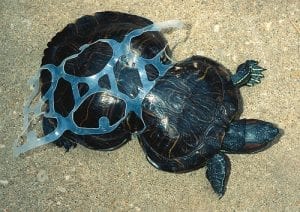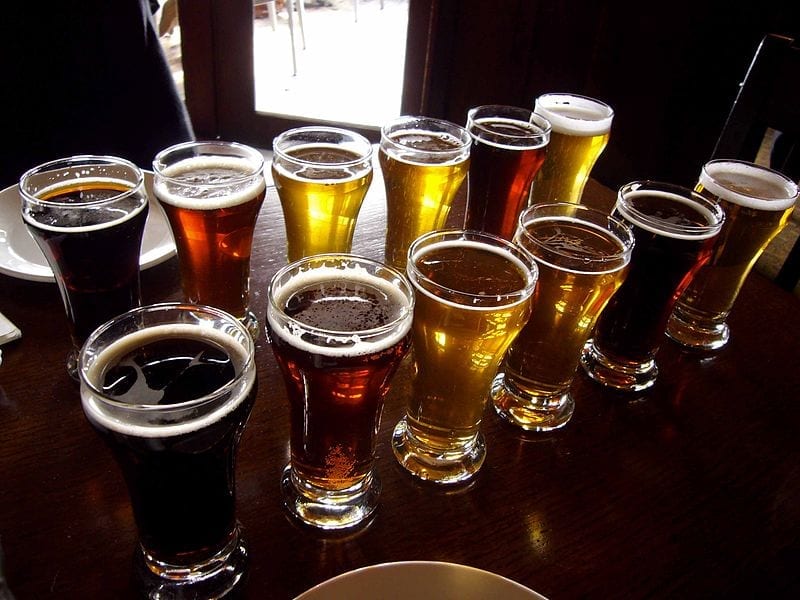Breweries around the world are using their fizzy powers to lift social and environmental causes as well as economies and spirits. Can beer save the world?
At its most basic, beer has four ingredients: water, malted barley, hops, and yeast. That’s the simple canvas upon which a skilled brewer works his or her magic, turning out a stunning array of flavors and styles from fruity, aromatic ales to tart lambics, from the most bitter IPA to a deep, chocolaty stout. Beer is a democratic beverage, enjoyed across the class divide and from the earliest recorded history, and it’s currently riding a wave of popularity across the United States as one of the few things that a lot of us can agree upon. It’s asking a lot of a humble beverage, but can beer save the world?
With the ashes of California’s deadliest, most destructive wildfire still blowing around in the wind, beer is taking care of the Camp Fire survivors. Specifically, Resilience Butte County Proud IPA, created by the Sierra Nevada brewery just west of Paradise, California. The good folks at Sierra Nevada aren’t just donating 100% of their sales of the special Resilience brew to rebuild and support their community, they’re making the recipe available to any other brewers willing to donate their sales to the cause as well. It only took two days for over a thousand other breweries across the country to join the effort, including Founders and Bell’s in Michigan, as well as over 50 breweries in Texas alone. Can beer save a California community, at least until the next fire? It just might!

Pick up a six pack lately? Breweries in Oregon and Denmark are looking to lighten their environmental impact by changing the way they package their products. If you’ve ever been sad in your heart to see wildlife trapped in plastic waste, you’ll appreciate the Danish brewer Carlsberg’s efforts to get rid of those eternal plastic six-pack rings. Instead, their cans will be connected with glue, which reduces their plastic use by 76%, sparing the world 1,200 tons of plastic waste a year. Meanwhile, a cooperative of brewers in Oregon is investing in more durable glass bottles that can be washed and refilled up to 40 times instead of having to be melted down and made anew with each pass through the cycle. Can beer save us from packaging waste? Let’s have some and find out!
Speaking of saving us from waste, Kelloggs UK is trying to minimize wasted food by making beer out of it. “Throw Away IPA” will be made out of wheat and “upcycled” corn flakes that are too big, too small, or too overcooked to be sold as cereal. Their plan to donate a bit of the purchase price from each can is just frosting on the flake.
Anheuser-Busch is a macrobrewery with macro goals. Making beer takes a lot of water, so breweries in water-sensitive areas are looking at a future of conservation and doing more with less. Not only do the same workers who bring us Budweiser take part in cleaning up rivers around the country, but the company itself is trying to reduce water use in all aspects of brewing, from developing new varieties of barley with higher yields using 40% less water, to more efficient brewing processes. Can beer save our rivers and aquifers, even as we turn it into water ourselves?
The best businesses remember that they’re responsible for more than just profits. Devil’s Backbone Basecamp Brewpub, cuddled up against mile marker 842 on the Appalachian Trail as it runs through Virginia, has been serving as a respite for thru-hikers for ten years now, and they’re giving back to their community and the ones who just pass through. Hikers can camp for free on the grounds and get a voucher for breakfast, and the brewery donates $1 from the sale of every case of their Trail Angel Weiss beer to the Appalachian Trail Conservancy.
Meanwhile, in Scotland, BrewDog brewery, which was born from a crowdfunding effort instead of a corporate boardroom, engages in creative protest by donating all proceeds from its Make Earth Great Again beer to 10:10, which lobbies for legislative action to combat climate change. Perhaps BrewDog’s most strikingly socially responsible initiative is their Unicorn Fund, whereby 20% of the brewery’s profits are given away. Half the money is divided equally among the employees, and the other half is donated to charities chosen by the staff and crowdfunding investors.
Can beer save the world? Sadly, probably not. However, it’s a beloved and affordable indulgence, and with 59% of American beer drinkers willing to pay more for a sustainably produced beer, there’s room for the multitude of ascendant craft brewers and the corporate giants alike to use their powers for social and environmental good, as well as for brewing great beer. Just remember, saving the world is something we can work at every day, but even the most worthy beer is best consumed in moderation.
Related: Breast Milk, Oil, Water, and Money


Join the conversation!